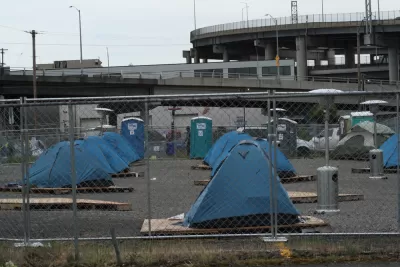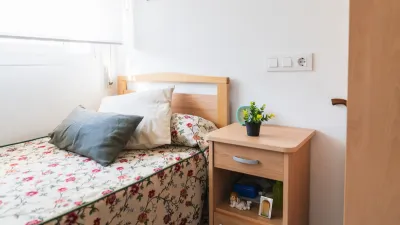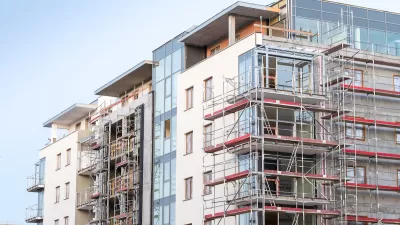Advocates point to a bevy of successes in slowing the spread of the virus, but authorities struggle with cost burden.

When COVID-19 swept across the United States last spring, it prompted a bevy of emergency public health responses, including the leasing of hotel and motel rooms to safely house vulnerable homeless people. Though far from perfect, the projects got thousands of people into non-congregate shelter and helped prevent further COVID outbreaks. As the pandemic drags on, state and city officials are looking to expand or revive those leasing efforts, or outright buy hotels as a permanent housing solution. What is driving the expansion, and why do some communities still avoid the hotel housing model?
Hotel rooms had been used to house people on the verge of homelessness for years before COVID-19, but the risk posed by the pandemic spurred local governments to lease these rooms at a larger scale. In some cases, local governments that once housed a few hundred people now house thousands, and they’re doing it with greater urgency than ever before.
Advocates of expanding the use of hotel rooms for this purpose point to the struggles facing the hospitality industry. Occupancy is down as both leisure and business travel have collapsed while large gatherings go virtual and people forgo unnecessary trips. A Jan. 21 report by the American Hotel & Lodging Association (AHLA) indicates that business is not expected to return to pre-COVID-19 levels for at least three years, and that half of all hotel rooms in the U.S. will remain empty until then.
The hotel housing programs may continue to expand due to a promise of more federal reimbursement. In the past year, many programs, such as ones in California and Vermont, were aided or enabled by a FEMA policy that reimbursed 75 percent of the leasing costs. On Jan. 21, the new Biden administration ordered FEMA to reimburse local governments at 100 percent of the cost through Sept. 30.
That decision is a game changer, says ...
FULL STORY: As the Pandemic Continues, Officials Look to Long-Term Housing Options with Hotels

Alabama: Trump Terminates Settlements for Black Communities Harmed By Raw Sewage
Trump deemed the landmark civil rights agreement “illegal DEI and environmental justice policy.”

Planetizen Federal Action Tracker
A weekly monitor of how Trump’s orders and actions are impacting planners and planning in America.

The 120 Year Old Tiny Home Villages That Sheltered San Francisco’s Earthquake Refugees
More than a century ago, San Francisco mobilized to house thousands of residents displaced by the 1906 earthquake. Could their strategy offer a model for the present?

Record Temperatures Prompt Push for Environmental Justice Bills
Nevada legislators are proposing laws that would mandate heat mitigation measures to protect residents from the impacts of extreme heat.

Downtown Pittsburgh Set to Gain 1,300 New Housing Units
Pittsburgh’s office buildings, many of which date back to the early 20th century, are prime candidates for conversion to housing.

Trump Administration Could Effectively End Housing Voucher Program
Federal officials are eyeing major cuts to the Section 8 program that helps millions of low-income households pay rent.
Urban Design for Planners 1: Software Tools
This six-course series explores essential urban design concepts using open source software and equips planners with the tools they need to participate fully in the urban design process.
Planning for Universal Design
Learn the tools for implementing Universal Design in planning regulations.
Clanton & Associates, Inc.
Jessamine County Fiscal Court
Institute for Housing and Urban Development Studies (IHS)
City of Grandview
Harvard GSD Executive Education
Toledo-Lucas County Plan Commissions
Salt Lake City
NYU Wagner Graduate School of Public Service





























